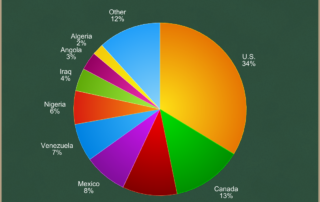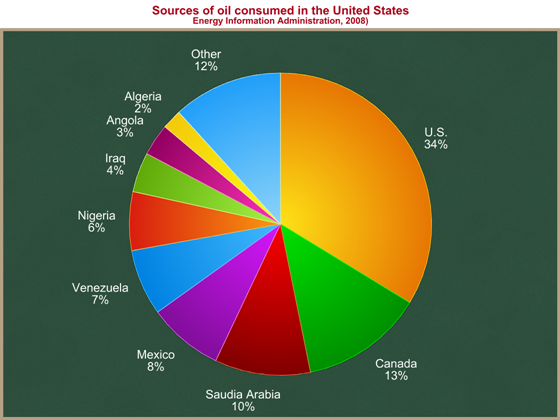Sloppy energy language: dependence on foreign oil
This is good language from the President in bold:
America’s dependence on oil is one of the most serious threats that our nation has faced.
This is not:
They’ll be jobs building the wind turbines and solar panels and fuel-efficient cars that will lower our dependence on foreign oil …
Nor is this:
And just last week I visited the Electric Vehicle Technical Center in Pomona, California, which is testing batteries to power a new generation of plug-in hybrids that will help end our dependence on foreign oil.
Is the U.S. dependent particularly on foreign oil, or just to oil? Is there anything we can do to break our “addiction to” or “dependence on” foreign oil?
In the Bush White House, policy staff worked hard over several years to excise the phrases “dependence on foreign oil” and “addiction to foreign oil” from the President’s prepared remarks. I hope the Obama team goes through the same effort. Sloppy language on this point creates expectations that can never be met by policy.
In 2008 the U.S. consumed an average of 14.7 million barrels of crude oil per day. U.S. suppliers produced just under 5 million barrels per day (bpd), meaning we imported 9.8 million bpd from the rest of the world.
You might be surprised to know that two of our top three foreign suppliers are Canada and Mexico. Here is where U.S.-consumed oil came from in 2008:
Well, that’s easy, you might say. Domestic production is fine, and Canada and Mexico are friendly and stable neighbors. How much oil do we get from unstable or unfriendly parts of the world? Maybe 30-40%? So if we reduce our oil demand by 40%, then we don’t need to import oil from the Middle East, or Venezuela or Nigeria. Problem solved. We will have eliminated our dependence on foreign oil, or at least on foreign oil from unstable or unfriendly parts of the world. (I will ignore for the moment whether it is feasible to reduce domestic oil demand by 40%.)
This is the flawed logic that supports the phrase “dependence on foreign oil.” It suggests that we can control the source of American oil. We cannot, and even if we could, it would not matter.
Two things matter to U.S. citizens when we think about imported oil:
- Large portions of the global oil supply are vulnerable to shocks. […]

